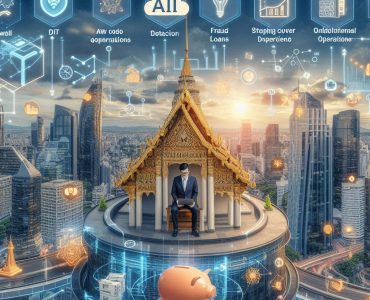January 6, 2025
Tech News
Malaysia has launched a national AI office to develop policies and regulations for artificial intelligence, aiming to drive economic growth and innovation. In a similar vein, Sumitomo Rubber Industries in Japan is streamlining its manufacturing processes by integrating business and production data through Rockwell Automation’s FactoryTalk ProductionCentre. This move is geared towards improving operational efficiency on a global scale to address challenges like rising material costs and labor shortages.
Looking ahead to 2025, industry experts stress the importance of innovation and resilience in the tech sector. Companies are expected to focus on hybrid and multi-cloud strategies, AI, and automation to drive growth, while also tackling challenges such as talent acquisition, cybersecurity, and integrating legacy systems with new technologies. Additionally, organizations are advised to prioritize security measures when managing multiple cloud systems to mitigate risks associated with data breaches and cyber threats.
The future of data centres will rely on advancements in AI, liquid cooling technologies, and sustainable practices. These innovations are projected to enhance operational efficiency and reduce environmental impact, aligning with global sustainability goals.
Tech Explained
Artificial Intelligence – AI refers to the simulation of human intelligence processes by machines, such as learning, reasoning, and self-correction.
Cybersecurity – Cybersecurity involves protecting computer systems, networks, and data from cyberattacks, unauthorized access, and data breaches.
Data Governance – Data governance is the overall management of the availability, usability, integrity, and security of data used in an enterprise.
Operational Efficiency – Operational efficiency refers to the ability of an organization to deliver products or services in the most cost-effective manner without sacrificing quality.
Sustainability – Sustainability involves meeting the needs of the present without compromising the ability of future generations to meet their own needs, often focusing on environmental, social, and economic factors.



